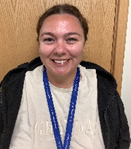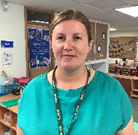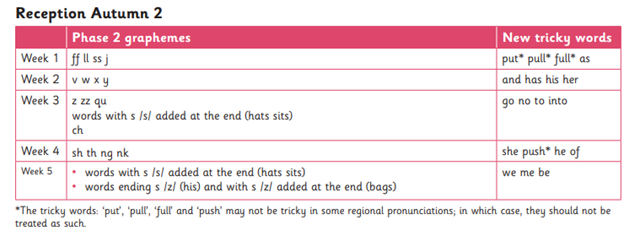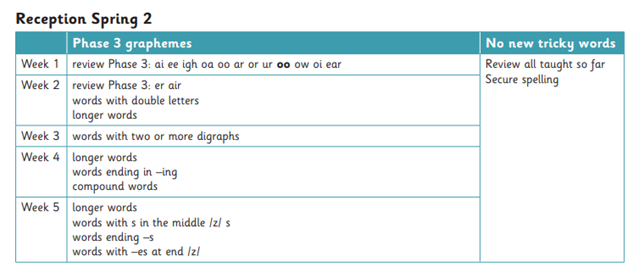Reception
WELCOME TO RECEPTION!
The Reception team, Miss Woodford, Mrs Stringer, Miss Hall, Miss Sells, Miss Adams and Mrs are really looking forward to the upcoming year.
The Reception Social Story
Welcome to Reception
If your child is feeling anxious about starting school in September, please share this short video with them. This will introduce them to their new teachers and classrooms.
Meet the Team
 |
|
 |
|
Miss Woodford- Teacher RAW |
Mrs Stringer- Teacher RJS |
Miss Hall- Teacher RCH |
|
|
 |
 |
|
Miss Sells- HLTA RAW |
Miss Adams- Teaching Assistant RJS |
Mrs Belouar- Teaching Assistant RCH |

Here you will find information about the school day, home learning, resources and useful websites.
Below are some of the daily activities in Reception
Fiddly Fingers-Fine and Gross Motor Activies
Little Wandle Phonics
Word Time-Word games, reading and fine and gross motor activities
Snack-this provided by the school
Drawing Club
Adventure Time
Wiggle to Squiggle
Dough Disco
Rhyme Time
Bright Write
We explore lots of fun topics during the year based on the children's interests. These experiences will provide us with excellent opportunities, such as trips, cooking and visitors coming in to talk to us. Some of our topics in the past have included pirates and fairy tales and exploring under the sea. To enhance our learning of these topics we have visited Hengistbury Head, Farmer Palmers and invited the Creature Teachers into school to meet a range of minibeasts and animals.
We will begin learning our phonemes to help us read, and become confident writers. We will also start to learn lots of various maths skills, including composition of numbers, cardinality and counting, patterns and shape, space and measure.
In Reception, we learn through play, so we are looking forward to creating lots of fun and exciting experiences for the children. If you feel this is something you could support us with, we always welcome volunteers to our base.
We update our Dojo page weekly to inform you about the topic your child is learning, the phonics that have been taught and the new skills they have learnt for mathematics.
Useful Information
- P.E is on a Thursday morning. Children to wear a PE kit (suitable for the weather that day)
- We read with the children three times a week and once we have taught them to blend words, they will bring home phonetic reading books to match their reading attainment every Thursday. The children will also have the opportunity to take home a 'Love to Read book' from the library which can be changed as and when they have read it.
A few points to remember
- Water only in water bottles
- Book bags are required every Thursday (only). Children cannot bring home a phonics or library book if they do not have a book bag.
- Name everything, especially water bottles, jumpers and cardigans.
- Doors close at 8:40am. Any children arriving after this time will need to enter through the main front office.
- Please read with your child at least 3 times a week.
- Please encourage your child to infer, predict and discuss the vocabulary within the book.
The Million Word Gap
New research shows the different number of words children will have heard by aged 5 based on how often parents read with them.
Never read to: 4,662 words
1–2 times per week: 63,570 words
3–5 times per week: 169,520 words
Daily- 296,660 words
Five books a day:183,300 words
EARLY LEARNING GOALS
In Reception, children work towards the Early Learning Goals (ELG). Children should achieve these goals by the end of Reception so that they are ready for the KS1 curriculum to begin in Year One. Below is a list of the 17 areas of development that children will be required to achieve early learning goals.
The 17 Early Learning Goals (ELGs) are:
Communication and Language
Listening and Understanding
Speaking
Personal, Social and Emotional Development
Self-Regulation
Managing Self
Building Relationships
Physical Development
Gross Motor Skills
Fine Motor Skills
Literacy
Comprehension
Word Reading
Writing
Mathematics
Number
Numerical Patterns
Understanding the World
Past and Present
People, Culture and Communities
The Natural World
Expressive Arts and Design
Creating with Materials
Being Imaginative and Expressive
Reading -
Children read and understand simple sentences. They use phonic knowledge to decode regular words and read them aloud accurately. They also read some common irregular words. They demonstrate understanding when talking with others about what they have read. Children learn that every letter makes a phoneme (sound) and each phoneme has a grapheme (letter) that corresponds.
Children should be able to....
-Recognise the following phonemes and the graphemes that represent them






Writing-
Children use their phonic knowledge to write words in ways which match their spoken sounds. They also write some irregular common words. They write simple sentences which can be read by themselves and others. Some words are spelt correctly and others are phonetically plausible.
Number -
Children count reliably with numbers from one to 20, place them in order and say which number is one more or one less than a given number. Using quantities and objects, they add and subtract two single-digit numbers and count on or back to find the answer. They solve problems, including doubling, halving and sharing.
To support reading at home you should….
Ensure you read with your child every day.
Ensure reading is part of your daily routine, including bedtime stories.
To support writing at home you should….
Encourage children to use writing as part of their day. i.e writing shopping lists, letters etc.
Practise correct letter formation when the children are writing and ensure they use the correct sounds when segmenting for writing.
See the Little Wandle parents guide
For parents | Letters and Sounds (littlewandlelettersandsounds.org.uk)
To support mathematics at home you should….
Ensure you continue to provide the opportunity to use numbers and shape in everyday life, e.g. counting out food, sharing your dinners, discussing shapes you see and their properties.
Use Numbots as a way to develop number fluency.
Below are a few websites that may be of use to help your child continue their learning when at home:
Phonics
- https://www.phonicsplay.co.uk/index.htm
- this website contains a variety of different games that can help your child apply their phonetic knowledge
- https://www.phonicsbloom.com
- Little Wandle
For parents | Letters and Sounds (littlewandlelettersandsounds.org.uk)
Tricky words (songs)
Tricky words are words that cannot be 'sounded out'
- https://www.youtube.com/watch?v=TvMyssfAUx0
- https://www.youtube.com/watch?v=R087lYrRpgY
- https://www.youtube.com/watch?v=e2dx65u59aw
Maths
- Counting song 1-20 https://www.youtube.com/watch?v=D0Ajq682yrA
- 2D shapes https://www.youtube.com/watch?v=OEbRDtCAFdU
- 3D shapes https://www.youtube.com/watch?v=guNdJ5MtX1A
- Counting/matching numeral to quantity https://www.topmarks.co.uk/Search.aspx?Subject=37 (ladybird spots or gingerbread men is a personal favourite)
- Doubles https://www.youtube.com/watch?v=8jOzhiACB68
- Recognising coins https://www.youtube.com/watch?v=dFzAU3u06Ps
Get Squiggling Fine/gross motor https://www.youtube.com/results?sp=mAEB&search_query=get+squiggling
Please contact your child's class teacher via Dojos if you have any further questions.
Thank you
The EYFS Team


